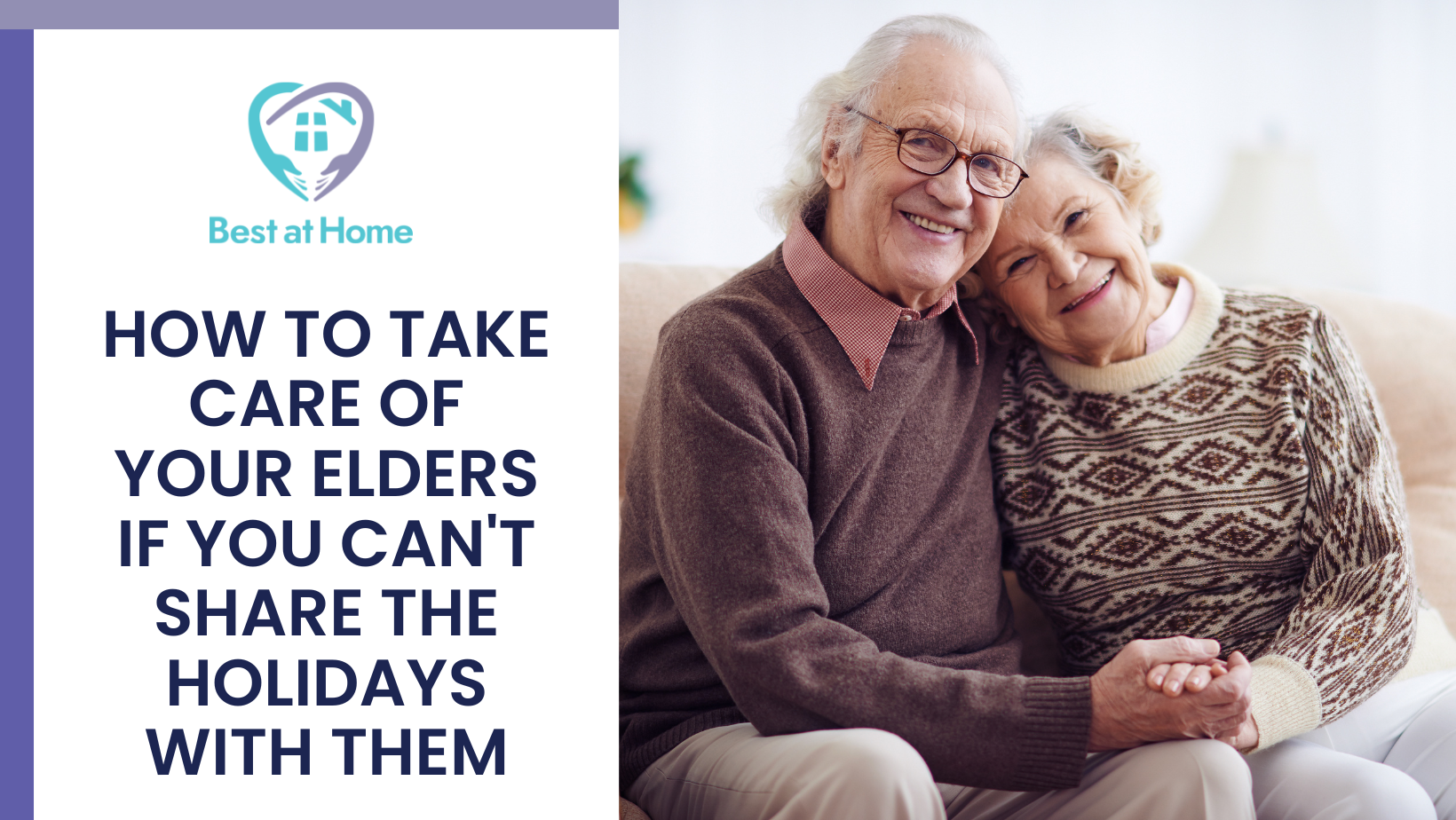How to Take Care of Your Elders if You Can’t Share the Holidays with Them

The holiday season is typically full of gatherings with our loved ones. However, if you cannot spend the holidays with an elder loved one, you may need the help of an in-home caregiver.
At Best at Home Caregiving, we help you care for your loved ones from the comfort of their home.
According to a 2020 report by AARP and the National Alliance for Caregiving, approximately 11% of caregivers in the United States live more than an hour away from their elderly loved one.
Caring for an older adult creates daily challenges. In addition, caring for them from a distance poses unique challenges for families. Check with us to learn how to keep your seniors watched from the comfort of their homes.
-
Pay attention to the signs.
If possible, try to schedule a visit to your loved one’s home. Spend time with them and take note of the state of the house, their ability to maintain hygiene, their financials, and whether simple tasks have become complicated. These signs can give you a picture of your senior’s needs so you can better respond to them.
Consider how you can help with your family member’s illness, medications, and resources that may be available to you. Information can help you understand what is happening, anticipate the course of a disease, prevent crises, and assist in managing health care.
-
Reach out and stay in touch.
If in-person contact with your loved ones is impossible, remember the value of a phone call. If your senior is tech savvy, tech-savvy is in touch through instant communication like WhatsApp and even video calls. Those are simple ways to keep your seniors close and give them the feeling of care and intimacy they miss so much around this time of year.
You can even take the time to teach them how to use mobile devices. This way, they can feel included in the remote activities. Then, prepare a tutorial, write for them, or invite them to write down the step-by-step to call you. We assure you that receiving a call from your seniors after you have taught them yourself is a rewarding and priceless feeling.
These signs may indicate an underlying issue, so ensure you pay attention during calls to things such as
⦁ Forgetfulness or memory problems
⦁ Evasiveness
⦁ Exits are never mentioned. (Older adults do not mention recent outings)
⦁ Difficulty hearing or understanding
⦁ They are either reticent or don’t sound good. (They are reluctant to comment on further details or not immediately; they don’t say right, you notice any difference, your gut is usually right.)
-
Protect their house.
Do a thorough safety assessment. Walk through every room in the house, including the garage, entrances, and exits where there are steps. If you can’t do it in person, hire a local professional.
Look for potential fall hazards, such as insufficient lighting, and focus on the places in the house where transitions occur. These transitions include getting out of bed, entering the shower or bath, and taking the stairs.
Getting in and out of bed—getting into the bathtub or shower—going up or down steps or stairs.
Next, install safety equipment such as handrails in hallways, bathroom grab bars, and motion detector lights when they get up at night. Taking care of the possible hazards assures that your seniors will not face unnecessary risks alone.
-
Consider home healthcare.
When you cannot be present to care for your elderly loved ones, we recommend using a home care service. This service is personalized through non-medical support and companionship provided by a qualified and trained professional caregiver.
In-home assistance can range from a few hours a week to round-the-clock care for
- Errands
- Household chores
- Personal hygiene
- Cooking
- Shopping
- Medication reminders
- And much more
As we saw, distance makes it challenging to know if and when your parents need help and how to get them that support when you can’t be there. For example, do your parents need help with daily chores or preparing and cooking a meal? Or do they need assistance with bathing, grooming, etc.? These are questions you may want to ask yourself before hiring a caregiver.
Contact us at 844-544-2378. Our support managers will provide you with the plan you and your loved ones need. Then, based on your needs, we will provide you with the best in-home caregiver to care for and support your loved ones.




